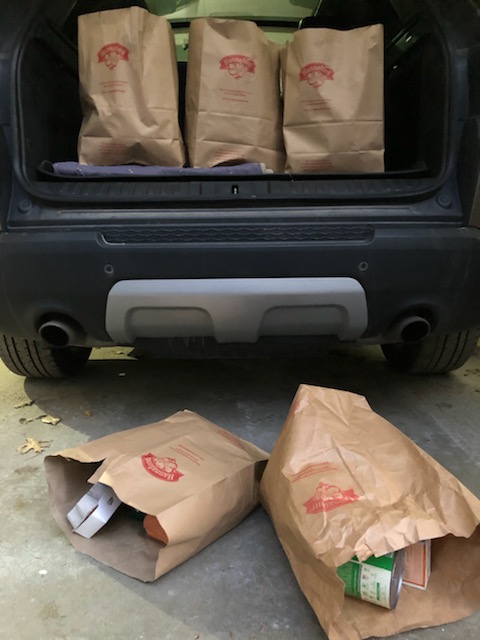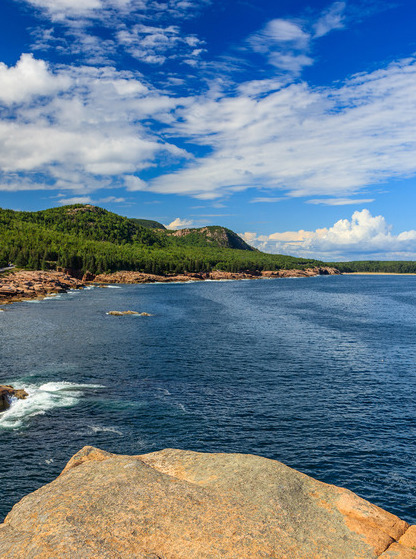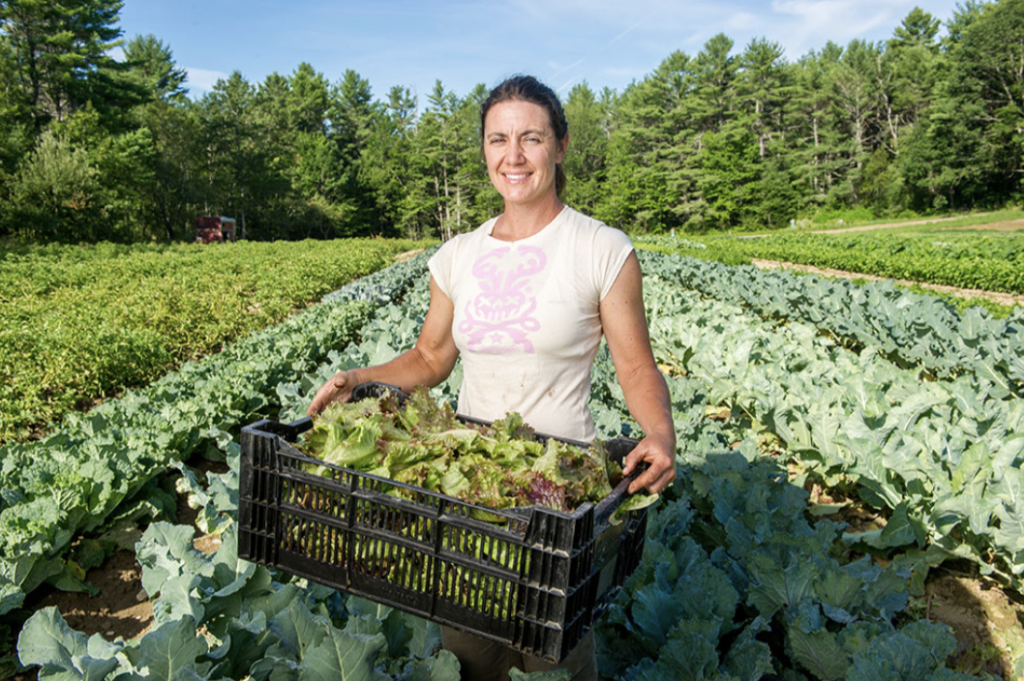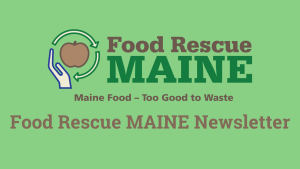Why Stop Wasted food?
Forty percent of food is wasted every year. When we stop wasting Maine’s valuable food, we can:
“Waste generation, management and disposal is an extremely complex issue, in part because it is intricately linked to a wide variety of economic, social and environmental issues affecting our state including public service provision, municipal and state budgets, private industry, ecological and human health, land use, and resident satisfaction with service, facility siting and operations.”
– Materials Management Research Group: Travis Blackmer, George Criner, David Hart, Cynthia Isenhour, John Peckenham, Chet Rock, Avinash Rude, and Linda Silka
Save Money = The Trifecta
Research shows that approximately 40% of the food that we produce ends up in the trash. The average family of four wastes about $3000 per year on food that never gets eaten!
We waste money in three ways:
- When we waste the food that we purchased.
- When we throw away food, we waste the valuable resources used to produce food, like fresh water, labor, energy and land. With well-documented shortages of water, energy, and labor leading to sky-high prices, this “second” cost of wasted food is important and growing.
- Finally, we waste money disposing of wasted food. Maine residents and towns are faced with escalating costs for trashing their wasted food due to limited landfill capacity and higher prices for gas and labor – the key components of wasted food disposal.
The money spent on wasted food, money spent to produce the wasted food, and money spent to dispose of wasted food


Fight Food SHortages and Rising Food Prices
Do you feel like there is nothing you can do about the empty shelves and rising prices at your local food store? Well, by ending wasted food in your home, you are lowering demand for food at your local food store.
This lower demand for food means that shelves can stay full longer. By shopping your own refrigerator and pantry BEFORE you go to the store, you can avoid paying today’s higher prices – and maybe also be a part of a larger effort to reduce inflationary demand that leads to higher prices.
Shop your fridge and cupboards first!
Feed More People
Research shows that when communities work to reduce wasted food, food donations increase. When our neighbors in Vermont passed laws to prevent food from going into the trash, they had a 24% increase in food donations.
When we buy or make more food than we can eat, it is only natural that we share that food with friends and family – and anyone in need. When you donate your food, you can feel good about both helping feed your community and keeping food out of landfills.

“I was on the phone with a truck driver at 7:30 last night… he said ‘I’ve got a pallet of potatoes that’s gotta come off the truck.’ I said, ‘you want it off tonight?’ He goes, ‘can you take it off tonight?’ I said, ‘I sure can, send it up to my warehouse I’ll have a guy there to unload it.’ Boom- we got a pallet of potatoes. Those pallets are going to our pantries, those pallets are going to feed folks.”
– Dixie Shaw, Program Director for Catholic Charities of Maine

Support Local Farming
For wasted food that is no longer good and edible for people, we can help Maine farmers by ensuring that this food goes to helping them save on feed costs for their chickens, pigs, and other livestock.
With animal feed costs rising just like the cost of our own food (which is also contributing to higher prices at the stores), our local farmers would greatly benefit from having food scraps to feed their animals.
Even for food that is no longer edible for animals, there are valuable nutrients and energy in these food scraps that can enrich the soil through composting. With a growing number of Maine home and community food composting programs, we can turn our wasted food into “black gold” that will create value for Maine’s farms.
Feed animals and soil!
Fight Climate Change
According to Project Drawdown, wasted food is one of the major contributors to the harmful greenhouse gases causing our climate to change dramatically. When food is put in the trash, it releases methane gas, a greenhouse gas about 28x more powerful than carbon dioxide.
The wasted food produced in the United States alone generates more greenhouse gasses annually than the entire airline industry!
While wasted food has been shown to contribute 8% of global greenhouse gas emissions, the latest recent research shows that this greenhouse gas production has actually been understated, because food transportation and packaging was not accounted for in that report.


Protect Maine’s Natural Resources
When we throw away our food, we are directly contributing to air and water pollution, as well as depriving our local soil of essential nutrients. Food that is trashed is primarily brought to Maine landfills. These landfills were created for dry trash and never intended to hold wet wasted food. As a result, the toxic wet liquid from wasted food (leachate) will often leak out of these landfills and pollute local waterways and wells.
A smaller part of our wasted food is brought to ‘waste-to-energy’ plants, where trash is burned, a process that pours pollution into the atmosphere.
Finally, the natural circular food system process requires that the nutrients in food are eventually returned to the earth as compost. Adding this food back into the soil as compost enriches our soils and enables us to grow more food on the same Maine acreage. By interfering with these natural processes and trashing our excess food, we deprive our soils of the nutrients they need. This lack of nutrients eventually leads to rich soils becoming worthless dirt incapable of feeding future generations.
Food thrown in the trash is incinerated or landfilled.
“On average, a little over 10 percent of greenhouse gas emissions come from agriculture. All of the food that is wasted is also unnecessary greenhouse gasses that are serving society in no positive ways. In addition, wasted food is wasted land. About half of the habitable land on the planet we used for agriculture. And the amount of that that we use to produce food waste where that land could be part of the solution, that land therefore is part of the problem. We are eroding our soils on the planet 10-100x the rate at which they are forming, and so that trajectory is unsustainable.”
– Ivan Fernandez, soil scientist, biogeochemist, distinguished UMaine professor, Maine Climate Council co-chair


